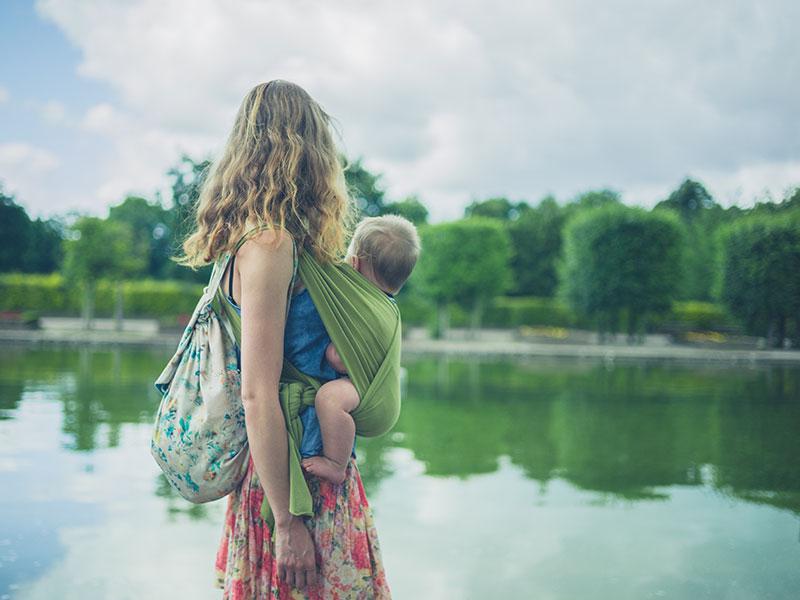Keeping baby close builds feelings of attachment to enhance your connection, leading to the production of an increase in happy hormones both for baby as well as the person doing the carrying.
Baby slings and carriers are also very practical, leaving you hands-free to get on with everyday tasks, and are much easier than a pram or pushchair when out and about on public transport or shopping.
It’s important to use a sling or carrier that is appropriate for your baby’s size, age and weight, and always follow the manufacturer’s instructions – many have online videos with more advice.
The NHS has produced a guide to safely using a baby sling or carrier. Their advice is to remember the acronym, TICKS.
- Tight - slings and carriers should be tight enough to hug your baby close to you. Any slack or loose fabric can cause your baby to slump down, which can restrict their breathing.
- In view at all times - you should always be able to see your baby’s face by glancing down. In a cradle position, your baby should face upwards, not be turned in towards your body.
- Close enough to kiss - your baby’s head should be as close to your chin as is comfortable. By tipping your head forward, you should be able to kiss your baby on the head or forehead.
- Keep chin off the chest - your baby’s chin shouldn’t curl onto their chest – this can restrict their breathing. Check that there is always at least a finger width space under the chin.
- Supported back - your baby’s back should be supported in its natural position. Their tummy and chest should be against you. If a sling or carrier is too loose, they can slump which can partially close their airway.
For more tips and advice about safely using a bay sling or carrier, watch this NHS-produced video.
Lots more advice and tips is also available on the Lullaby Trust and Royal Society for the Prevention of Accidents (RoSPA) websites.

